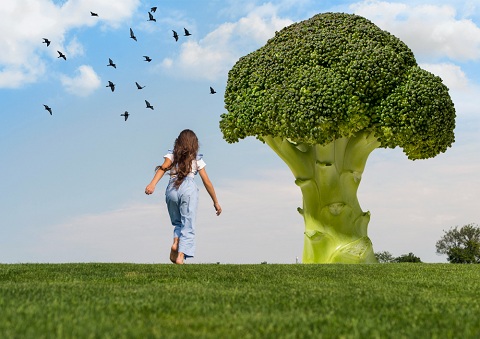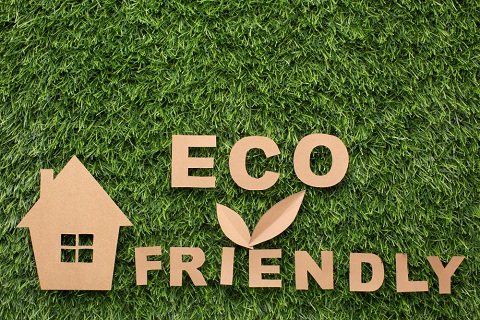Welcome to a journey of transformation, where the power of green takes center stage in reshaping not just our environment but also our lives. In this comprehensive guide, we delve deep into the realms of sustainable living, exploring how simple changes can lead to significant impacts on our planet’s health and our personal well-being.
Understanding Sustainable Living
What is Sustainable Living?
Sustainable living is a lifestyle choice that prioritizes environmental sustainability by minimizing resource consumption and reducing waste. It encompasses various practices, from eco-friendly habits to conscious consumption choices, aimed at preserving natural resources for future generations.
Benefits of Sustainable Living
Embracing sustainable living offers a myriad of benefits, including:
- Environmental Preservation: Reduced carbon footprint, conservation of natural habitats, and protection of biodiversity.
- Cost SavingsAdopting sustainable practices can lead to significant economic benefits. Investments in renewable energy create job opportunities, reduce dependence on fossil fuels, and drive innovation in green technologies, contributing to long-term economic growth and stability.
- Healthier LifestyleUltimately, sustainable living improves overall quality of life. It fosters a harmonious relationship between humans and the environment, promotes mindful consumption and production, and creates a legacy of stewardship for future Participation in local initiatives, supporting ethical businesses, and fostering a sense of environmental responsibility.
- Social EquitySustainability encompasses social equity by addressing issues of social justice, equity, and inclusion. Sustainable practices promote fair wages, safe working conditions, and access to essential services, fostering a more equitable society for all.
- Climate Change MitigationSustainable living plays a vital role in mitigating climate change. By embracing renewable energy sources, promoting energy efficiency, and reducing greenhouse gas emissions, individuals and communities contribute to a healthier planet and a more stable climate.
- Technological Advancements:
Continued investment in green power technologies drives advancements in energy efficiency, storage solutions, and grid integration. This fosters innovation, increases system reliability, and paves the way for a more sustainable energy future.
Transforming Your Lifestyle

Eco-Friendly Habits
- Reduce, Reuse, Recycle:
Implementing the 3 R’s—reduce waste, reuse items, and recycle materials—forms the foundation of sustainable living. Opt for reusable products, recycle packaging, and minimize single-use plastics.
- Energy Conservation:
Conserve energy by using energy-efficient appliances, turning off lights when not in use, and maximizing natural light through well-designed spaces.
- Water Conservation:
Save water by fixing leaks, using water-efficient fixtures, and practicing mindful water usage in daily activities.
Sustainable Consumption
- Local and Organic:
Support local farmers and choose organic products to reduce pesticide use and promote sustainable agriculture.
- Minimalism:
Embrace minimalism by decluttering, buying only what you need, and focusing on quality over quantity to reduce waste.
- Upcycling and Repurposing:
Give new life to old items through upcycling and repurposing, reducing waste while unleashing creativity.
The Impact on Our Planet
Environmental Conservation
By adopting green practices, we contribute to:
- Carbon Emission Reduction: Lowering carbon emissions through sustainable transportation and energy choices.
- Waste Reduction: Minimizing landfill waste by recycling and composting.
- Ecosystem Protection: Preserving natural habitats and wildlife by supporting conservation efforts.
Personal Well-Being
Sustainable living positively impacts our health and well-being:
- Physical Health: Access to fresh, organic foods and clean environments promotes better health outcomes.
- Mental Well-Being: Reduced stress from simplified living, connection with nature, and a sense of purpose in environmental stewardship.
Here are the answers to your FAQs about The Power of Green
Green living benefits the environment by reducing pollution, conserving natural resources, and minimizing harm to ecosystems. Practices such as using renewable energy, recycling, reducing waste, and choosing eco-friendly products contribute to lower carbon emissions, cleaner air and water, and protection of wildlife habitats.
Starting a greener lifestyle can be easy and impactful. Here are some simple ways to begin:
Use reusable bags, bottles, and containers to reduce single-use plastics.
Opt for energy-efficient appliances and LED lighting to save energy.
Conserve water by fixing leaks and using water-saving fixtures.
Choose locally grown and organic foods to support sustainable agriculture.
Recycle paper, plastic, glass, and metal materials to reduce waste.
Yes, green living can save money in the long run. Practices such as energy conservation, water efficiency, and waste reduction lead to lower utility bills and reduced expenses on disposable products. Additionally, investing in renewable energy sources like solar panels can generate long-term savings on energy costs.
Renewable energy sources, such as solar, wind, hydroelectric, and geothermal power, play a crucial role in green living. They provide clean and sustainable alternatives to fossil fuels, reducing greenhouse gas emissions and mitigating climate change. Embracing renewable energy helps transition towards a more environmentally friendly and resilient energy system.
Conclusion
The power of green extends far beyond environmental activism; it transforms our lifestyles, enhances our well-being, and paves the way for a healthier planet. Embracing sustainable living is not just a choice but a responsibility we owe to ourselves and future generations.




